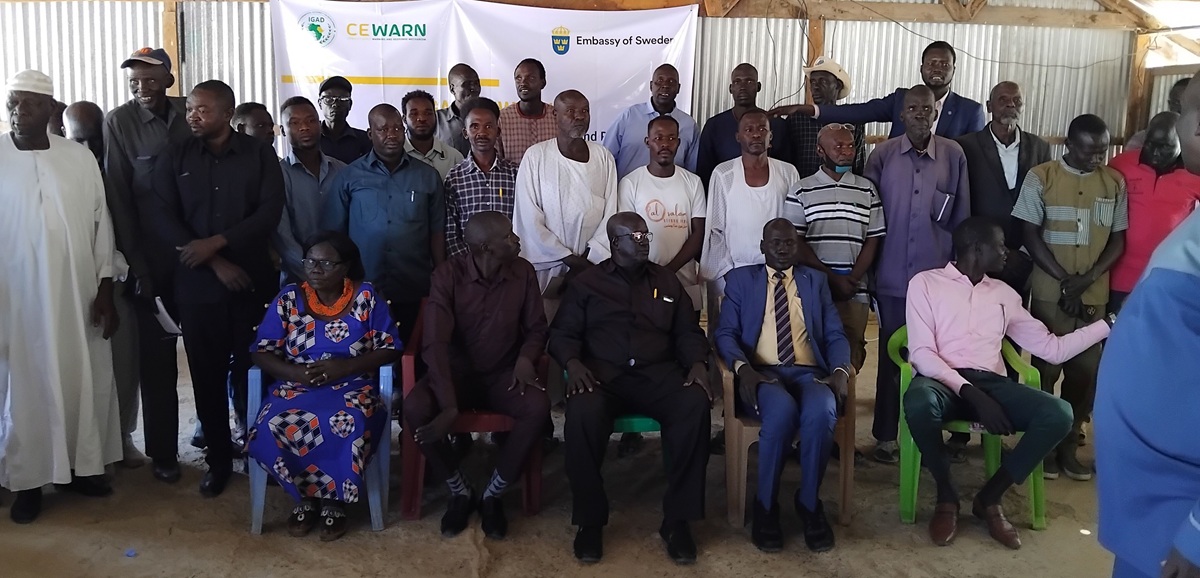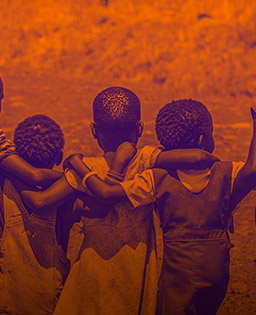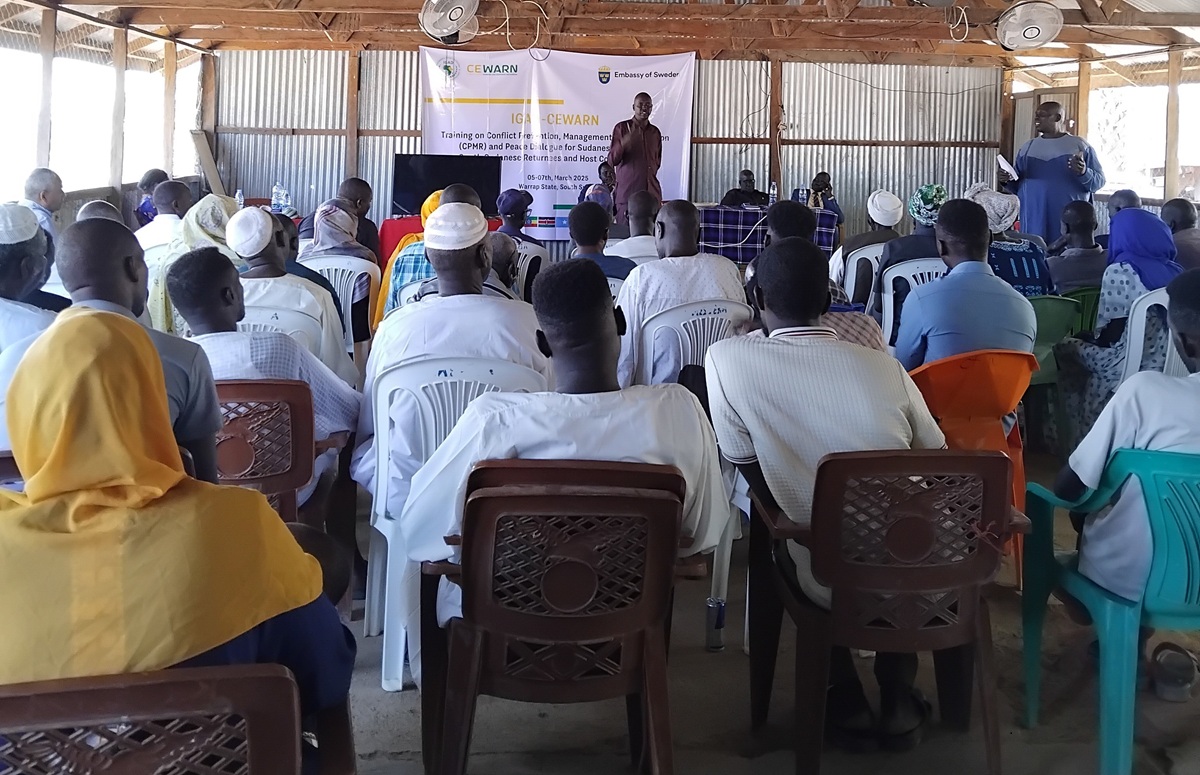
In response to the influx of Sudanese refugees and South Sudanese returnees into the Republic of South Sudan following the escalation of conflict in Sudan since April 2023, Warrap State particularly the counties’ bordering Sudan has faced mounting pressures. The growing population has strained limited local resources and fragile infrastructure, compounding already complex dynamics among refugees, returnees, and host communities. With tensions simmering over access to scarce resources, cultural and identity differences, and longstanding grievances, the risk of localized conflict remains significant.
To address these challenges and foster sustainable peace, the Conflict Early Warning and Early Response Unit (CEWERU) of the South Sudan Peace and Reconciliation Commission (SSPRC), with support from the Conflict Early Warning and Response Mechanism (CEWARN) of IGAD, organized a three-day peace dialogue and Conflict Prevention, Mitigation, and Resolution (CPMR) training in Wunrok Payam, Twic County, Warrap State.
The event brought together Sudanese refugees, South Sudanese returnees, and host community members in a safe space aimed at building trust, strengthening relationships, and charting a path toward peaceful coexistence. A total of 43 participants took part in the training and dialogue, representing diverse voices and stakeholders from the affected communities
Objectives of the Training and Dialogue
The initiative was designed with several key objectives:
-
Capacity Building: To equip stakeholders from all groups with practical skills and knowledge in conflict prevention, mitigation, management, resolution, and dialogue methodologies.
-
Open Dialogue: To provide a platform for open exchange of views, ideas, and opinions among local government stakeholders, refugees, returnees, and host communities in an atmosphere of trust and mutual respect.
-
Understanding Conflict Dynamics: To foster deeper insights into the local drivers of conflict and the potential consequences of tensions among the affected communities.
-
Promoting Coexistence: To jointly develop actionable strategies for peaceful coexistence and equitable sharing of scarce resources.
- Strengthening Local Structures: To enhance coordination and cooperation between government institutions, humanitarian actors, and community-based organizations in advancing CPMR efforts in Warrap State.
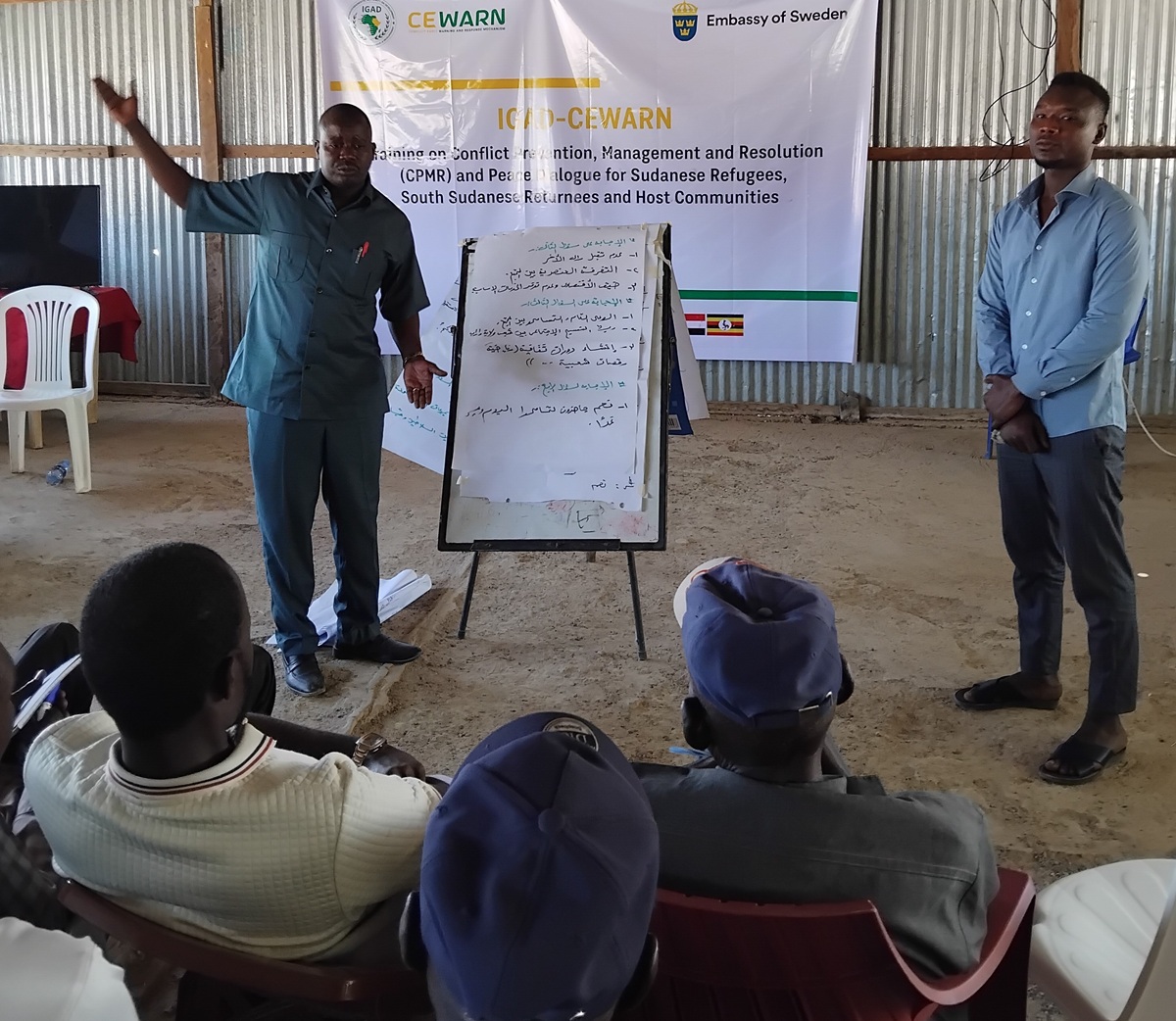
Structure of the Training and Dialogue
The three-day event was carefully structured to maximize learning and meaningful engagement. During the first two days, participants were taken through a comprehensive introduction to the basics of conflict, including concepts of conflict prevention, mitigation, resolution, and transformation. This foundational training equipped the participants with practical tools and a clear understanding of how to recognize and manage conflict dynamics within their communities.
On the final day, the focus shifted to dialogue. Participants were engaged in practical sessions on how to conduct simple, structured community peace dialogues. These sessions specifically addressed how to use dialogue as a tool to resolve multiple conflict drivers affecting refugees, returnees, and host communities. This practical exposure enabled the participants to apply conflict resolution techniques in real-life scenarios relevant to their local context.
Key Outcomes and Recommendations
The dialogue concluded with a set of concrete recommendations to mitigate existing challenges and promote lasting peace:
-
Reintegration and Settlement: Collaborate with local authorities to facilitate the reintegration and settlement of returnees and refugees, including the establishment of safe and secure camps and the protection of refugee property and businesses.
-
Dispute Resolution: Form a neutral development committee comprising opinion leaders to mediate disputes and regulate resource-related investments.
-
Boundary and Resource Sharing: Resolve boundary issues in Warrap State and agree on equitable resource-sharing mechanisms.
-
Legal Frameworks: Strengthen legal structures by training chiefs and sub-chiefs in customary and constitutional law, re-establishing the county court in Wunrok, and training paralegals and legal officers.
-
Cultural and Social Reforms: Develop community policies to ban harmful traditional practices, raise awareness through peace clubs and seminars, and engage enforcement units to ensure compliance.
-
Livelihood Support: Provide agricultural tools and seeds to returning IDPs, establish telecommunication networks across key Payams, rehabilitate feeder roads, and ensure equal employment opportunities for youth and women.
- Economic Empowerment: Offer business grants to rural small-scale enterprises and encourage the formation of cooperative societies across Warrap State to stimulate economic resilience and self-reliance.
A Step Toward Lasting Peace
This dialogue marks a crucial step in building a more peaceful and resilient Warrap State, where refugees, returnees, and host communities can coexist in harmony and collaborate for a better future. SSPRC, in partnership with local authorities and communities, remain committed to advancing inclusive peacebuilding initiatives that leave no one behind.

